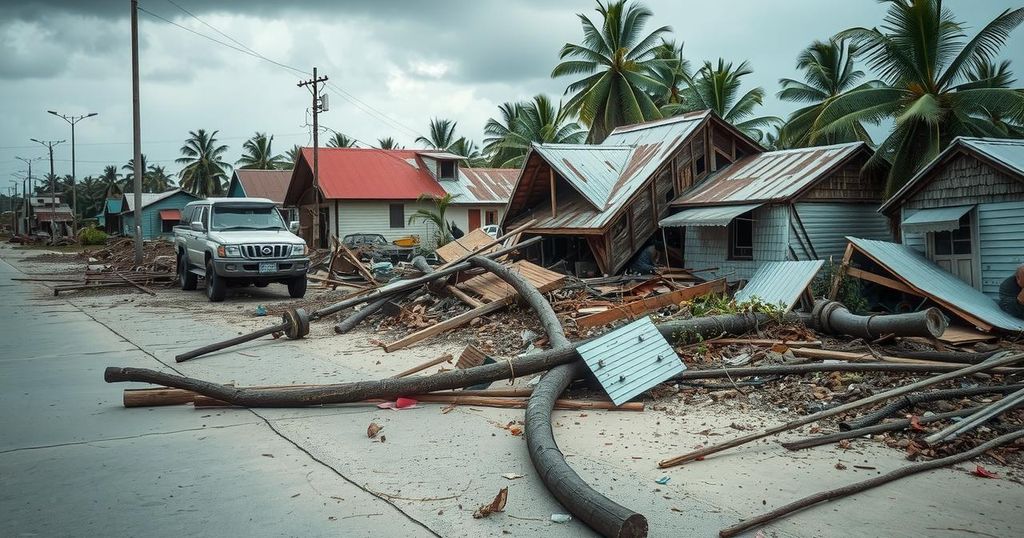Cyclone Chido has devastated Mayotte and Mozambique, causing massive destruction and possibly thousands of fatalities. Experts correlate the cyclone’s intensity with climate change, citing warm ocean waters. Rescue efforts are hindered by disrupted essential services and the presence of undocumented individuals, while humanitarian aid efforts are initiated by international organizations.
On December 15, Cyclone Chido unleashed catastrophic destruction across Mayotte, an island department of France, where shantytowns were obliterated, and essential infrastructure, including the airport, sustained significant damage. The storm’s severity has been attributed to climate change phenomena, specifically the elevated temperatures of Indian Ocean waters. In its aftermath, the island has faced significant challenges with power, water, and communication services disrupted, complicating rescue operations. Current estimates indicate that the death toll may reach into the thousands due to the cyclone’s ferocity. Following its initial impact on Mayotte, Cyclone Chido subsequently made landfall in Mozambique, amplifying devastation in the region where the United Nations Office for the Coordination of Humanitarian Affairs (UN OCHA) has raised alarms for 1.7 million individuals at risk. European Commission President Ursula von der Leyen and the World Health Organization have committed to providing humanitarian assistance, although the presence of approximately 100,000 undocumented residents poses obstacles to conducting a comprehensive damage assessment.
Cyclone Chido serves as a grim reminder of the increasingly destructive nature of cyclones associated with climate change. The phenomenon of warmer ocean temperatures is a critical factor in the intensity of such storms, which have been observed to wreak havoc across vulnerable regions. Mayotte, situated in the Indian Ocean, is particularly susceptible to these environmental shifts. The extensive damage from Chido not only affects immediate survivors but poses a long-term challenge for recovery and rebuilding efforts in the impacted regions, notably where infrastructure is already strained.
In summary, Cyclone Chido has resulted in catastrophic effects in both Mayotte and Mozambique, with estimates suggesting thousands may have perished. The ongoing challenges in restoration efforts following the cyclone, particularly in terms of communication and aid distribution, highlight the urgent need for strategic intervention. The international response has begun, led by organizations such as the UN and EU, aiming to mitigate the dire conditions exacerbated by climate change-induced weather phenomena. The continuous monitoring of such events becomes paramount as efforts to understand and combat climate influences on such disasters progress.
Original Source: m.economictimes.com






